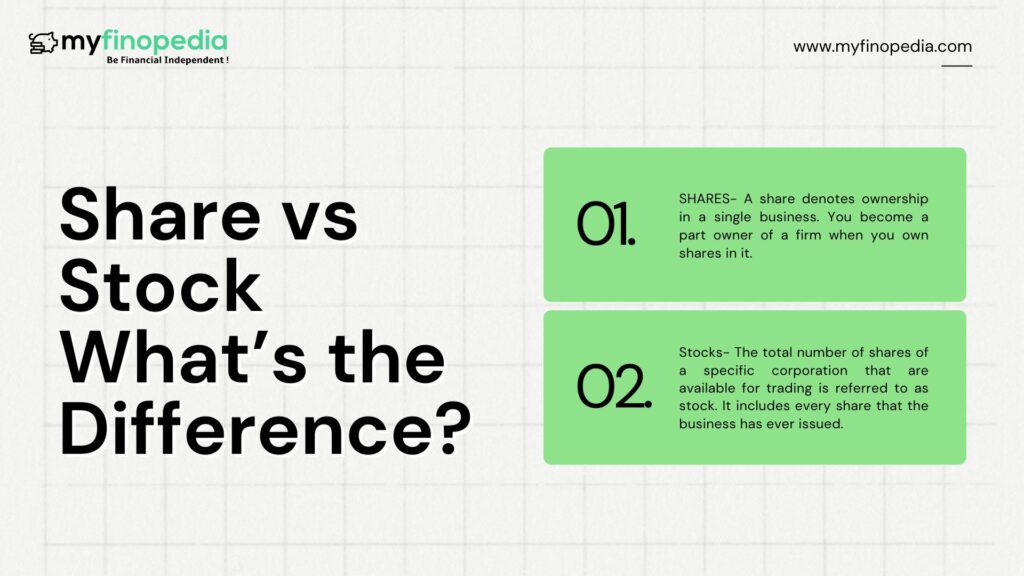1. Definition
SHARES- A share denotes ownership in a single business. You become a part owner of a firm when you own shares in it.
STOCKS- The total number of shares of a specific corporation that are available for trading is referred to as stock. It includes every share that the business has ever issued.
2. Individual vs Collective Ownership:
SHARES- Shares are units of individual ownership in a company. Each share represents a portion of ownership.
STOCKS- Stock represents the aggregate ownership of a company, consisting of all shares issued by the company.
3. Market and Trading Considerations:
SHARES- Individual shares are exchanged on stock exchanges. Shares are acquired and sold by investors to other investors.
STOCKS- The aggregate market value of a company’s stocks is represented by their collective trading. Instead of trading individual shares, investors can trade stocks as a whole.
4. Investment Strategy:
SHARES- Investors may choose to buy individual shares of different companies to diversify their investment portfolio or to focus on specific companies they believe will perform well.
STOCKS- Investors may opt to invest in stocks of various companies to gain exposure to different sectors or industries, or they may invest in index funds or exchange-traded funds (ETFs) that track a broad market index.
5. Corporate Structure:
SHARES- Companies issue shares to raise capital and allow investors to become part owners. Shareholders may have voting rights and receive dividends.
STOCKS- The term “stock” may also refer to the overall equity capital of a company, including common stock and preferred stock.
In summary, while “share” and “stock” are often used interchangeably, they have distinct meanings. “Share” refers to individual units of ownership, while “stock” refers to the collective ownership of a company or the entire market of shares available for trading. Understanding the difference between these terms is crucial for investors navigating the financial markets.






